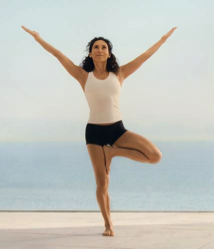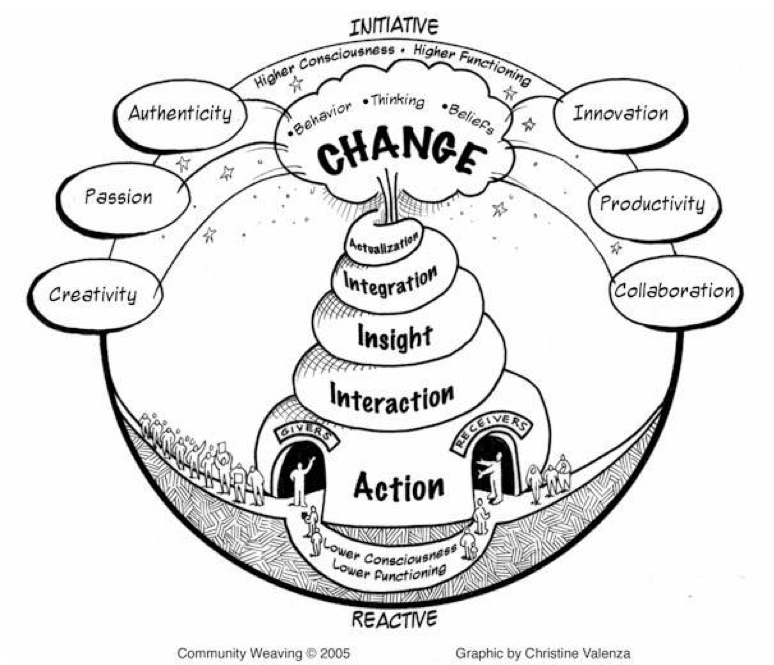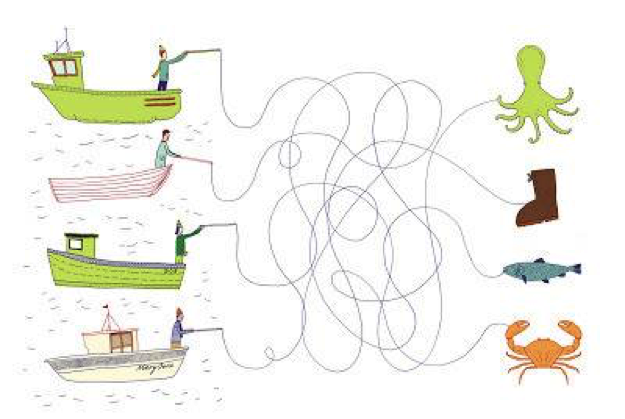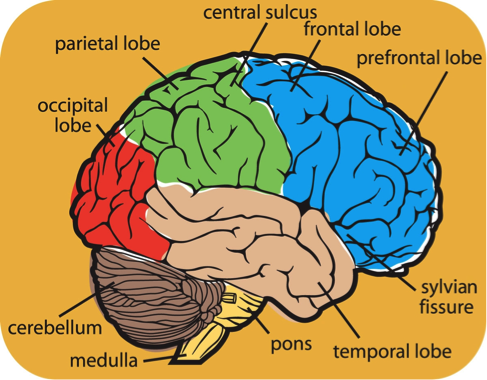January 5, 2015 - 15:59

Personal Growth and Self Image
Beginning with the idea of mindfulness, we took the idea of self empowerment and ran with it. Towards the beginning of the semester, we considered ways in which people in power can take action to allow for the empowerment of others. However, after participating in experiential in-class mindfulness workshops involving physical movement, mental meditation, and self reflection, we realized the complexity of self empowerment. Because mindfulness exercises demand one's full attention of the body and its surroundings, mindfulness exercises encourage the control and knowing of one's body. Indeed, some of us were initially uncomfortable when we experienced the total awareness that mindfulness encourages. Yet mindfulness exercises like facilitated movement, dance, and meditation encourage the replacement of external self image with internal feelings and sensations (a type of being that was quite foreign to some of us). Thus, we learned that mindfulness could be one step towards personal growth and self empowerment (themes that many of the words below relate to)
Balance
Deficit:
- A state in which no one area of a person’s life or one commitment overwhelms the person’s time and energy;
- The ability of an individual to outweigh the negative aspects of his or her life by putting into place an adequate amount of reactionary positive measures.
Desire:
- A state in which a person is satisfied with how much time, energy, headspace, or self-defined ‘currency’ they spend in each area of their life;
- They feel that they put equal amounts of effort into their commitments, or more effort into the commitments that they enjoy and value the most;
- The ability of an individual to recognize and integrate the valued aspects of their life or determinants of their health in a way that allows each to harmoniously complement the others;

Balance can be manifested in tree pose in yoga; grounded/rooted, and then reaching and expanding up and outwards.
Change
Deficit:
- Identifying negative or problematic situations and phenomena, and seeking way to alter them that negates or limits the effects of these issues. Specifically as it relates to health, change implies the alteration of restrictive or negative situations so as to limit disease of other health concerns.
Desire:
- Encouraging personal and community-wide agency with regards to health outcomes;
- Embracing the idea health is a dynamic state for everyone, and that a constantly evolving environment (including behavior, thinking, and beliefs) is healthy;
- In the graphic below, the upper ground contains intangible ideas, while the lower ground symbolizes more concrete things, like actions, our bodies, and the material world. The middle section connects the intangible world with the tangible. It designates ideas and thoughts as “higher functioning/ consciousness” and bodily action as “lower functioning/ consciousness,” yet we should keep in mind that mind and body are inextricably linked to each other, and neither can exist without the other. Thus, we should be weary of labeling either as “higher” or “lower” than the other.

Competencies
Deficit:
- the ability to obtain something, gained knowledge and skills
Desire:
- the ability to do something without which cannot achieve what you want
- From: “schools are also charged with developing certain competencies that underpin appropriate behaviors.”
- having the power/capability that can be developed to achieve what is desired
Community development
Deficit:
- Creating a system for collective support and action.
Desire:
- Drawing on the strengths of a group to further empower collective action.
Damage
Desire-based:
- That which shapes and informs the thoughts and experiences of a person. The understanding of this “shape” helps to create an education that best enriches and empowers the individual.
Deficit-based:
- The impairment of one’s “value, usefulness, or normal function.” – Google definition. Thansmit the certain pattern of beliefs, arts and institution
Death:
Deficit-Based:
- Loss of life
Desire-Based:
- Part of life
Desire
“We must use what we have to invent what we desire.”-- Adrienne Rich
Desire-based:
- a lifelong process of? ‘Informed seeking,’ the drive to reach towards or create something that will enlarge and build on that which is already there.
- “Desire is assembled, crafted over a lifetime through our experiences. For them, this assemblage is the picking up of distinct bits and pieces that, without losing their specificity, become integrated into a dynamic whole. This is what accounts for the multiplicity, complexity, and contradiction of desire, how desire reaches for contrasting realities, even simultaneously… Exponentially generative, engaged, engorged, desire is not mere wanting but our informed seeking.” – Eve Tuck, p.418 ‘informed seeking’ makes me think of appaderai!
- sthe state of yearning or aspiration towards a not-yet-realized but potent possibility.
Deficit-based:
- Seeking to fill a void, a hole; lack that needs to be compensated for.
- “theorists … posit desire as a hole, a gap, or that which is missing…” – Eve Tuck, p.418 The wishes and cravings of people for things that they do not actually need; the desire for unnecessary things such as power and material goods can be detrimental when people waste time, effort and energy seeking these things and attempting to fulfill these desires.
Empowerment
From Etymology Dictionary:
- empower (v.)
- 1650s, used by Milton, but the modern popularity dates from 1986; from en- (1) + power. Related: Empowered; empowering; empowerment.
- en-. word-forming element meaning "in, into," from French and Old French en-, from Latin in- "in, into" (see in- (2)). Typically assimilated to -p-, -b-, -m-, -l-, and -r-. Also used with native elements to form verbs from nouns and adjectives, "put in or on" (encircle), also "cause to be, make" (endear), and used as an intensive (enclose). Spelling variants in French that were brought over into Middle English account for parallels such as assure/ensure/insure.
- Thoughts: Power in who? Put there by who? Is it already in there? "Leading out or putting in?"
Deficit-based:
- Overcoming obstacles in one’s path to move beyond a place of challenge, struggle or weakness.
Desire-based:
http://harrietrussell.blogspot.com/2013/06/fishing-in-turin.htm

It’s like the saying goes, “give a man to fish, you feed him for a day. Teach a man to fish & you feed him for a life time”. Through the approach of empowerment, rather than merely giving them treatments or interventions, individuals can help by providing the tools for others to improve their capacity to transform their own health conditions throughout their life.
Strength-based:
- Using the strengths that one possesses and receiving the help that is warranted in order to improve one’s position and become a more independent agent with choices. “Social and physical environments interact with biology…individuals ‘embody’ aspects of the contexts in which they live and work.” –WHO; the individual cannot be divorced from the context, meaning that achieving empowerment will involve the influence and help of one’s peers and services to create a more equitable and participatory system.
Article on empowerment
"Helping, fixing, and serving represent three different ways of seeing life. When you help, you see life as weak. when you fix, you see life as broken. When you serve, you see life as whole. Fixing and helping may be the work of the ego, and service the work of the soul."
- Rachel Naomi Remen
(Quote shared by Alice)
Mindfulness
Deficit-Based Definition:
- The silencing, blocking, or filtering of one's thoughts and/or sensations
Desire-Based Definition:
- To be conscious of the mind and the body as an inherently harmonious union, in order to live at ease with ever-changing temporalities and not cling to the ebbs and flows of life.
- An understanding of one’s environment and surroundings, being aware of thoughts, and an increase of attentiveness.
- “During the waves of these thoughts and emotions, acknowledge them, and welcome them. Do not try to change them with positive thinking, do not try to analyze why they are there — they just are.”
http://www.rebellesociety.com/2013/12/17/meditation-listen-when-you-know-you-have-wandered/
- Awareness of one’s feelings, thoughts, and sensations without judging, with the goal of turning soft, loving attention to them as they come and go, enabling a deeper connection to one’s highest values and purpose.

A second grade teacher visited the Health Literacies class and told the story that after doing some class mindfulness exercises and lessons about the human brain, she later overheard two kids conversing when coming in from recess. One of the boys turned to the other one and said someone on the playground had made him really angry, “My amygdala was going crazy,” he remarked. He then explained to his friend that he tried the “breathing stuff” the teacher talked about. He concluded, “I’m tellin’ ya man, that stuff worked; it really worked!”
Mistake
Deficit based:
- A noun describing something that did not go as planned.
Desire based:
- An event that strays from the predicted path, yet also leads down an equally legitimate and perhaps even more enlightening path
Motivation, (n):
Deficit-Based:
- The desire to overcome difficulties in order to surpass them and move past them.
- the act of failing that provides one with the desire to succeed
- what pushes a person or organization to improve; outside forces such as money, fear of failure, and evaluation (like grades)
Desire-Based:
- an intrinsic desire that provides one with a reason to accomplish something
- The desire to listen to one’s own, personal compass, and follow it in any direction they choose, so as to live life according to one’s own agency, to the best of one’s ability.
- allowing one’s actions to be driven by a passion and mission with the awareness of the potential that the future holds to create change over one’s circumstances.
- an individual’s or group’s reason for working towards a goal and continuing to grow after that goal is met; intrinsic forces such as enjoyment of work and progress
Possibility
Deficit:
- get to another level, create unprecedented events and results
Desire:
- the potential to achieve what has not been done, the undefined outcomes and ends
- From title “schools, health literacy and public health: possibilities and challenges”
Potential
Deficit-Based -
- Pressure to follow through with something based on your capabilities to do it.
Desire-Based -
- The capability to do and/or imagine? something in the future.
Presence
Deficit based:
- Not ruminating on the past, or being concerned with the future.
- Being completely connected with an individual or situation in such a way that you are one with them, immersed in the thoughts and emotions of the moment.
- Antonym of distance
- An inward dwelling (see Ergas Why Meditate? p. 142)
Desire based:
- James Miller The Art of Being a Healing Presence: "A healer is someone who can see your movement towards wholeness more clearly than you're able to yourself at a given point in time"
- Relishing in the pure connection, rather than in words or actions
Resistance
Deficit:
- The refusal to accept or comply with something; the attempt to prevent something by action or argument
Desire:
- Moving beyond the victim/oppressor framework, resistance can challenge stereotypes through engaging in synthesis and renewal of a community's’ history (Tuck 422).
- Examples of resistance: art, voice, activism, actions, buying power/boycotting
Risk:
Deficit-Based:
- jeopardizing oneself for the sake of a desire or goal; the hazard or chance of loss
Desire-Based:
- challenging one’s innate knowledge that is within the body in order to more fully understand or more deeply engage;
- ‘high challenge, low threat?’
- idea of a safe v comfortable space (take risks in a space that is a bit uncomfortable yet still safe)
Senior Citizen
Deficit-based:
- A person who, due to age, can no longer work enough to full support herself. A person who can no longer do everything independently. Or just: an individual over the age of 65 (makes age their most important characteristic)
Desire-based:
- A wise and seasoned individual who can contribute experience, knowledge, and reason to a variety of circumstances. Someone who is full of amazing stories to tell and advice to
- An elder human whose continued survival and thriving are part of sustaining the universe as they pass into the next developmental phase of life./how about instead: An elder human whose strengths and luck have enabled him/her to continue to survive and whose continued development can contribute to that of others.

